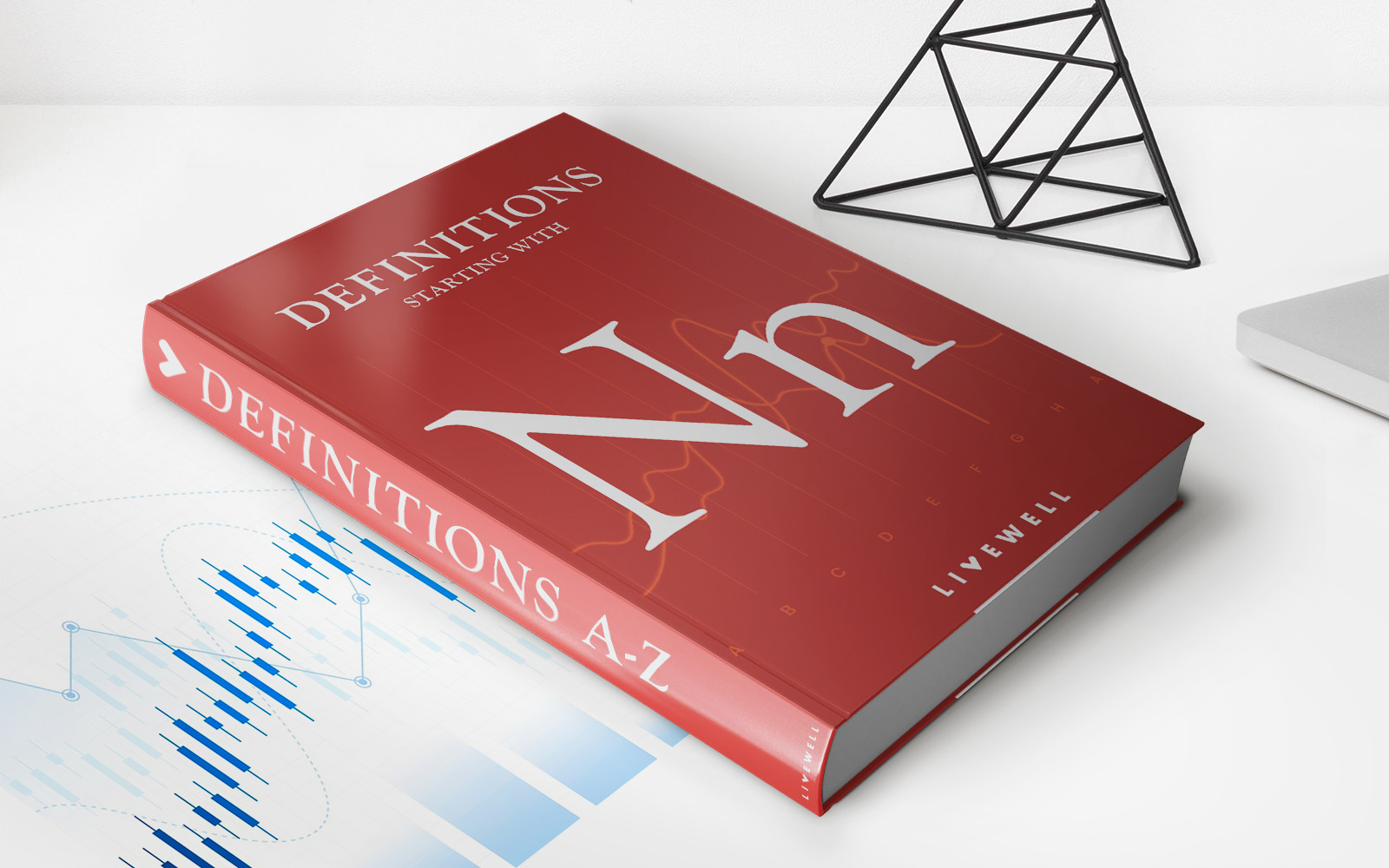

Finance
How Has Technology Changed Accounting
Published: October 8, 2023
Discover how technology has revolutionized the world of finance and transformed the field of accounting, enhancing efficiency and accuracy in financial management.
(Many of the links in this article redirect to a specific reviewed product. Your purchase of these products through affiliate links helps to generate commission for LiveWell, at no extra cost. Learn more)
Table of Contents
Introduction
Technology has transformed nearly every aspect of our lives, and the field of accounting is no exception. In the digital age, advancements in technology have revolutionized the way financial transactions are recorded, processed, and analyzed. With the advent of automation, cloud-based accounting systems, and real-time reporting capabilities, the accounting profession has undergone a significant transformation.
Gone are the days of manually entering data into ledgers and spending hours reconciling accounts. Today, accountants can leverage technology to streamline their processes, increase efficiency, and ensure accuracy in financial reporting. The integration of technology in accounting has not only improved the precision and speed of calculations but has also provided businesses with real-time access to financial data.
This article will explore the ways in which technology has changed accounting, highlighting the benefits and implications of these advancements. From automation of accounting processes to enhanced data security, these changes have reshaped the role of accountants and revolutionized the financial management landscape.
Automation of Accounting Processes
One of the most significant ways technology has impacted accounting is through the automation of various accounting processes. Tasks that were previously performed manually, such as data entry, invoice processing, and bank reconciliations, can now be automated using accounting software and tools.
By automating these processes, accountants can save valuable time and reduce the risk of errors. Manual data entry is prone to human error, which can lead to mistakes in financial records and reports. With automation, data can be directly imported into accounting systems, minimizing the chances of typos or miscalculations.
Moreover, automation allows for the seamless integration of different financial systems, enabling the automatic exchange of data between accounting software, banking platforms, and other business tools. This integration eliminates the need for manual data transfers and ensures accuracy and consistency across various financial records.
Additionally, with the use of technologies like optical character recognition (OCR) software, accountants can now easily process and extract relevant information from invoices and receipts. This eliminates the need for manual data entry, saving time and reducing the likelihood of mistakes.
Automation also streamlines the process of reconciling bank statements with accounting records. By linking bank accounts to accounting software, transactions can be automatically imported and matched to the corresponding records. This not only reduces the time spent on reconciliation but also provides a more accurate and up-to-date view of a company’s financial position.
Overall, the automation of accounting processes has greatly enhanced efficiency and accuracy in financial management. Accountants can focus on more value-added tasks, such as data analysis and strategic decision-making, rather than being bogged down by manual data entry and transaction processing.
Cloud-Based Accounting Systems
Cloud-based accounting systems have revolutionized the way financial data is stored, accessed, and managed. Rather than relying on traditional on-premises software, businesses now have the option to store their accounting information securely in the cloud.
Cloud-based accounting systems offer several benefits compared to traditional systems. First and foremost, they provide businesses with the flexibility to access their financial data from anywhere, at any time, as long as there is an internet connection. This has proven to be especially valuable in today’s fast-paced business environment, where remote work and collaboration are increasingly common.
Furthermore, cloud-based accounting systems eliminate the need for businesses to invest in costly hardware and infrastructure. Instead, they can subscribe to a software-as-a-service (SaaS) model, where they pay a monthly or annual fee to access and use the software. This significantly reduces upfront expenses and allows businesses to scale their accounting systems easily as their needs evolve.
In addition to cost savings, cloud-based accounting systems offer enhanced data security. Cloud service providers employ robust security measures, such as encryption, firewalls, and regular backups, to protect sensitive financial information. These measures often exceed the security capabilities of individual businesses, providing a higher level of protection against data breaches and unauthorized access.
Collaboration is another key advantage of cloud-based accounting systems. Multiple users can securely access the same financial data simultaneously, making it easier for accountants, bookkeepers, and other stakeholders to collaborate and work together in real time. This streamlines communication and improves the efficiency of financial management processes.
Cloud-based accounting systems also provide automatic software updates and maintenance. The burden of managing software upgrades and patches is shifted to the cloud service provider, ensuring that businesses always have access to the latest features and fixes without the need for manual installations.
Overall, cloud-based accounting systems offer flexibility, cost savings, enhanced security, collaboration capabilities, and effortless software updates. They have transformed the way businesses manage their financial data, making accounting processes more efficient, accessible, and scalable.
Increased Efficiency and Accuracy
Technology has significantly increased efficiency and accuracy in the field of accounting. The automation and digitization of accounting processes have streamlined workflows, reduced manual errors, and improved overall productivity.
Accounting software and tools have automated repetitive and time-consuming tasks, such as data entry, calculations, and financial reporting. This automation eliminates the need for manual intervention and reduces the chances of human errors. Accountants can now rely on accurate and consistent data, which in turn improves the quality of financial reporting and decision-making.
Moreover, technology has enabled real-time data processing, allowing accountants to access up-to-date financial information instantly. This eliminates the need for manual data consolidation and reconciliation, saving time and improving the accuracy of financial statements. Accountants can now generate reports and track key performance indicators (KPIs) in real-time, gaining valuable insights into the financial health of a business.
Furthermore, technology has introduced intelligent algorithms and machine learning capabilities that can analyze large volumes of financial data and detect patterns and anomalies. This enables accountants to identify potential fraud or errors more efficiently, ensuring that financial records are accurate and reliable.
The use of technology also enables the integration of financial systems, eliminating duplicate data entry and promoting data consistency across various platforms. For example, accounting software can be integrated with banking systems, payment gateways, and invoice management tools. This integration facilitates seamless data exchange and eliminates manual errors that often occur during data transfer.
Additionally, technology has improved the speed of financial processes. Accountants can now process transactions, generate invoices, and reconcile accounts much faster than before. This not only saves time but also enables businesses to have a more responsive and efficient financial management system.
Overall, the increased efficiency and accuracy brought about by technology in accounting have transformed the way businesses manage their financial processes. Accountants can focus more on analysis, strategy, and decision-making rather than spending excessive time on manual and repetitive tasks. The result is a more efficient and effective financial management system that supports the growth and success of businesses.
Improved Access to Financial Information
Technology has opened up new avenues for businesses to access their financial information easily and efficiently. With the advent of online accounting systems and cloud-based storage, accessing financial data has become more convenient and accessible to users across different devices.
Gone are the days when financial data was locked away in filing cabinets or restricted to a single computer. Today, businesses can securely store their financial information in the cloud, allowing authorized users to access it anytime, anywhere. This is particularly beneficial for remote workers or businesses with multiple locations, as it enables seamless collaboration and real-time access to financial data.
Cloud-based accounting platforms provide a centralized hub for storing and managing financial information. Through an internet connection, users can access their accounts, view transactions, generate reports, and perform analyses from any device, including smartphones, tablets, or laptops. This flexibility allows for better decision-making, as stakeholders have immediate access to the most up-to-date financial insights.
Furthermore, cloud-based accounting systems often integrate with other business applications, such as customer relationship management (CRM) software or project management tools. This integration enables the sharing of financial data across different systems, providing a holistic view of the company’s financial health and facilitating better-informed decision-making.
In addition to improved accessibility, technology has also introduced interactive reporting and data visualization features. Accountants can generate customized reports and dashboards that present financial data in a visual and intuitive manner. These reports can be easily shared with stakeholders, allowing them to grasp the financial performance of the business more effectively.
With improved access to financial information, businesses can respond more quickly to market changes, identify potential risks or opportunities, and make informed decisions that drive growth. Real-time access to financial data empowers businesses to adapt their strategies and allocate resources effectively, ultimately improving their competitive advantage.
Overall, technology has revolutionized the accessibility of financial information. Cloud-based accounting systems and interactive reporting features provide businesses with real-time, secure, and user-friendly access to their financial data. This accessibility allows for better collaboration, informed decision-making, and improved financial management.
Real-Time Reporting and Dashboards
Technology has brought about a significant shift in financial reporting by enabling real-time reporting and interactive dashboards. Traditionally, financial reports were generated at the end of a reporting period, providing a historical snapshot of a company’s financial performance. However, with the advancements in technology, accountants and businesses can now access real-time financial data and generate reports on-demand.
Real-time reporting allows accountants to monitor financial activities as they happen, providing up-to-the-minute insights into the company’s financial health. With the click of a button, accountants can generate reports that reflect the latest transactions, balances, and key performance indicators (KPIs). This real-time visibility into financial data empowers businesses to make informed decisions quickly.
Interactive dashboards take real-time reporting to the next level by visualizing financial data in a dynamic and user-friendly manner. Dashboards consolidate relevant financial information into a single view, presenting key metrics, charts, and graphs that help users monitor performance and identify trends. Accountants and stakeholders can customize these dashboards to include the specific metrics and KPIs that are most important to them.
Dashboards provide a comprehensive overview of the company’s financial performance, allowing users to drill down into specific areas or departments for deeper analysis. For example, a sales dashboard may include metrics such as revenue, sales growth, and customer acquisition rate, while a cash flow dashboard may focus on cash inflows, outflows, and liquidity ratios.
These real-time reporting and dashboard capabilities enable accountants and business owners to identify and address financial issues promptly. They can pinpoint areas of concern, such as declining sales or rising expenses, and take immediate action to mitigate risks and optimize performance.
In addition, real-time reporting and dashboards facilitate better communication and collaboration within the organization. With access to real-time financial data, managers and executives can have meaningful discussions and make data-driven decisions together. Moreover, stakeholders can easily share dashboards with others, ensuring that everyone is on the same page and working towards common financial goals.
Overall, real-time reporting and dashboards provide accountants and businesses with the tools to assess financial performance in the present moment. This immediate access to data enhances decision-making, improves transparency, and empowers organizations to proactively manage their finances for long-term success.
Enhanced Data Security
The advancements in technology have brought about increased concerns regarding data security. In response to these concerns, technology has also greatly enhanced the security measures in place to protect financial data.
Cloud-based accounting systems, for instance, employ robust security protocols to safeguard sensitive financial information. These systems utilize encryption techniques to encrypt data both during transit and while at rest, ensuring that unauthorized individuals cannot access the data. Additionally, cloud service providers often implement firewalls, intrusion detection systems, and regular security audits to further protect data from potential threats.
Furthermore, cloud-based accounting platforms often offer multiple layers of authentication and access controls to ensure that only authorized users can access financial data. Two-factor authentication, for example, requires users to provide an additional form of verification, such as a temporary code sent to a mobile device, in order to log in.
Regular data backups are another crucial aspect of data security in accounting systems. Cloud-based accounting platforms typically offer automatic and regular backups, ensuring that data can be restored in case of any unforeseen events, such as hardware failure or data corruption.
Data security is not limited to cloud-based accounting systems alone. Measures such as strong password policies, restricted user permissions, and regular software updates are equally important in securing financial data. Accountants should adopt best practices to safeguard their local systems, including the use of strong passwords, regular antivirus scans, and firewall protection.
Another aspect of data security is compliance with regulatory requirements. Technology plays a vital role in ensuring that businesses meet their legal obligations in terms of data privacy and security. With the implementation of robust security measures and encryption techniques, businesses can demonstrate their compliance with data protection regulations, such as the General Data Protection Regulation (GDPR).
Overall, enhanced data security measures in accounting systems provide businesses with peace of mind when it comes to protecting their financial information. The combination of encryption, access controls, authentication protocols, and regular backups ensures that financial data is well-guarded against unauthorized access, loss, or corruption.
Integration with Other Business Systems
Technology has facilitated seamless integration between accounting systems and other business tools, allowing for a more streamlined and efficient flow of data across different departments and systems within an organization.
Integration with customer relationship management (CRM) systems, for example, enables the automatic synchronization of customer and sales data between the CRM platform and the accounting software. This integration eliminates the need for manual data entry, reducing errors and duplicate records. It also provides a unified view of customer interactions and financial transactions, allowing for better customer management and improved financial analysis.
Similarly, integration with inventory management systems ensures accurate and up-to-date tracking of inventory levels, product costs, and sales data. As sales and purchasing information is automatically synced with the accounting system, accountants can efficiently manage inventory valuation, cost of goods sold, and stock levels. This integration streamlines the accounting process and minimizes the chances of errors or discrepancies in financial reporting.
Integration with payment gateways and online banking systems allows for seamless import and reconciliation of financial transactions. With the click of a button, transactions from various payment channels, such as credit cards or online payment systems, can be automatically imported into the accounting software. This integration ensures that financial records are complete and accurate, saving time and reducing manual errors in the reconciliation process.
Furthermore, integration with project management tools enables the tracking of project-related expenses, time tracking, and resource allocation. This integration allows accountants to easily allocate costs to specific projects or clients, improving project profitability analysis and billing accuracy.
Integration with payroll systems automates the process of recording wages, benefits, and tax deductions, eliminating the need for manual data entry and potential errors. This integration ensures that employee compensation information is accurately recorded in the accounting system, making payroll processing more efficient and reducing the risk of compliance issues.
Ultimately, the integration of accounting systems with other business tools enhances data accuracy, improves efficiency, and promotes better collaboration across different departments. By seamlessly sharing data between systems, businesses can eliminate duplicate data entry, reduce manual errors, and gain a holistic view of their financial and operational performance.
Changing Role of Accountants
The advancements in technology have had a profound impact on the role of accountants. As automation and digital tools continue to evolve, the traditional tasks and responsibilities of accountants have transformed, leading to a shift in their role within organizations.
One significant change brought about by technology is the automation of routine and repetitive tasks. With the help of accounting software and tools, accountants can now automate data entry, transaction processing, and financial analysis. This automation allows accountants to focus on more strategic and value-added activities, such as financial planning, analysis, and decision-making.
Technology has also empowered accountants with real-time access to financial data and improved reporting capabilities. Accountants can generate reports and analyze financial information on-demand, providing valuable insights for business owners and stakeholders. This real-time reporting enables accountants to contribute to decision-making processes and offer financial guidance based on up-to-date information.
Moreover, technology has made collaboration and communication easier for accountants. With cloud-based accounting systems and integrated platforms, accountants can work seamlessly with other departments, such as sales, marketing, and operations. They can share financial information, collaborate on budgeting and forecasting, and provide valuable insights to support strategic initiatives.
With the rise of big data and advanced analytics, accountants are increasingly becoming data-driven professionals. They are responsible for analyzing large volumes of financial data, identifying trends, and providing valuable insights to drive business growth. Accountants now require a strong foundation in data analysis and interpretation to leverage the power of technology in making informed decisions.
In addition to their technical skills, accountants must also possess strong communication and interpersonal skills. As technology takes care of routine tasks, accountants are expected to effectively communicate financial information to non-financial stakeholders. They play a vital role in translating financial data into meaningful insights and recommendations that can be easily understood by others within the organization.
Furthermore, the increased reliance on technology has made accountants indispensable in ensuring data security and compliance. They must stay updated on the latest regulations and implement robust security measures to protect financial information from cyber threats and unauthorized access.
In summary, the role of accountants has evolved from manual data entry and transaction processing to being strategic advisors and data analysts. Accountants are now seen as valuable partners who contribute to the financial well-being and growth of organizations. Their expertise in leveraging technology, interpreting financial data, and providing valuable insights is crucial in guiding business decisions and driving success.
Conclusion
Technology has had a profound impact on the field of accounting, transforming the way financial transactions are processed, recorded, and analyzed. From automation of accounting processes to cloud-based accounting systems, real-time reporting capabilities, and enhanced data security, these advancements have reshaped the role of accountants and revolutionized financial management practices.
Automation has eliminated manual tasks and reduced the risk of errors, allowing accountants to focus on more strategic and value-added activities. Cloud-based accounting systems have improved accessibility, providing real-time access to financial data from anywhere, at any time. Real-time reporting and interactive dashboards have empowered accountants with instant insights, enabling better decision-making and facilitating collaboration within organizations.
Furthermore, technology has enhanced data security, safeguarding financial information through encryption, access controls, and regular backups. Integration with other business systems has streamlined the flow of data within organizations, eliminating the need for manual data entry and enhancing data accuracy.
As technology continues to advance, the role of accountants will continue to evolve. Accountants are now data-driven professionals, leveraging technology to analyze financial data, interpret trends, and provide valuable insights to support business growth. Their expertise in financial reporting, compliance, and communication is crucial in guiding organizations and ensuring their financial well-being.
In conclusion, technology has revolutionized the field of accounting, making processes more efficient, accessible, and secure. It has transformed the role of accountants from data entry and processing to strategic advisors and financial analysts. As technology continues to evolve, it will be essential for accountants to adapt and embrace these changes, utilizing technology to its fullest potential for the benefit of organizations and their financial management practices.














